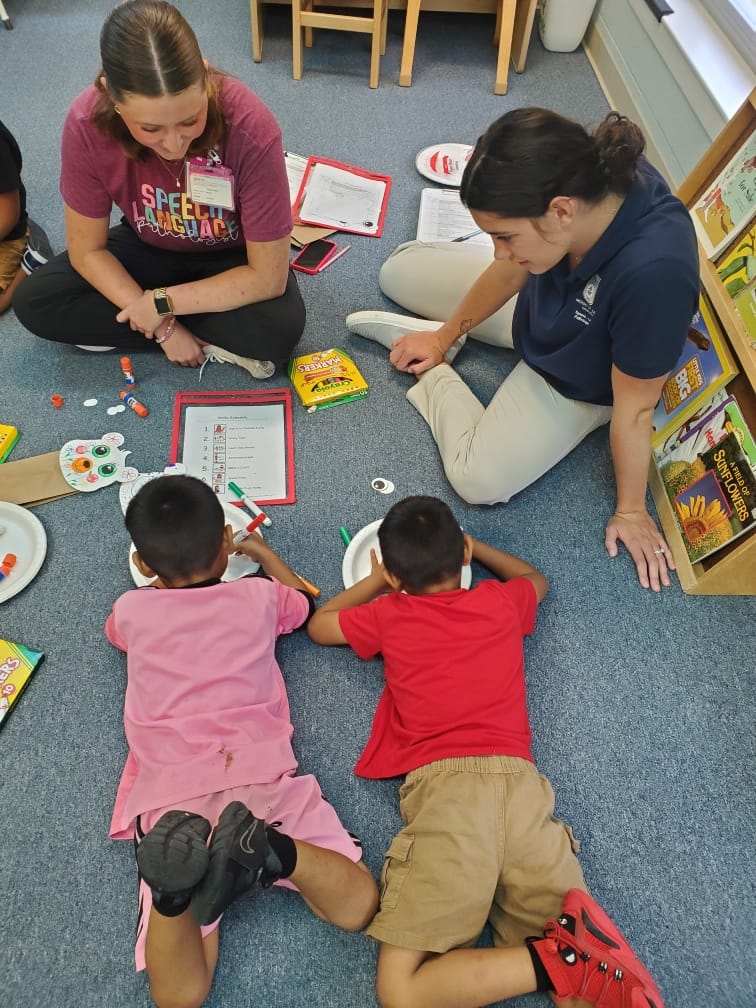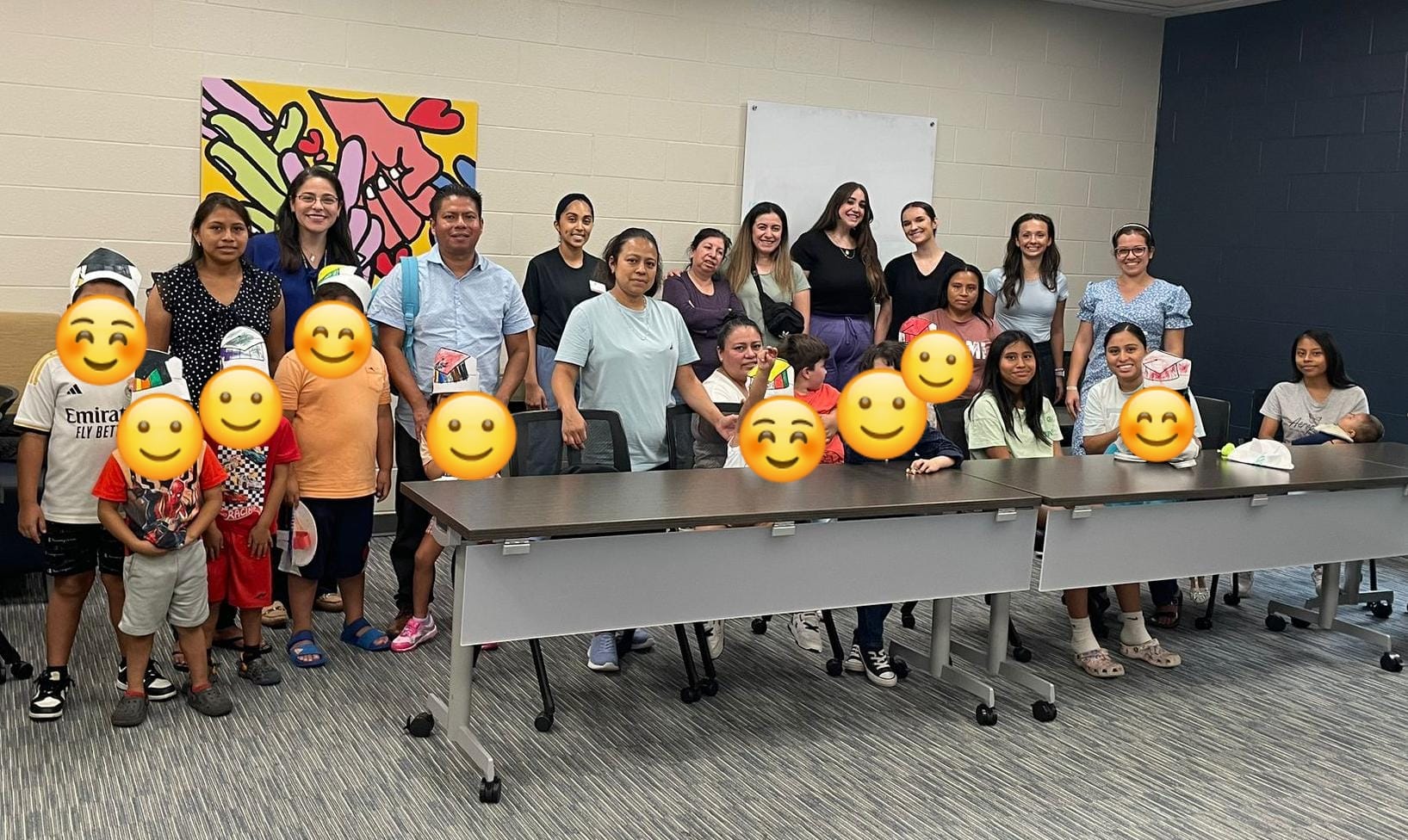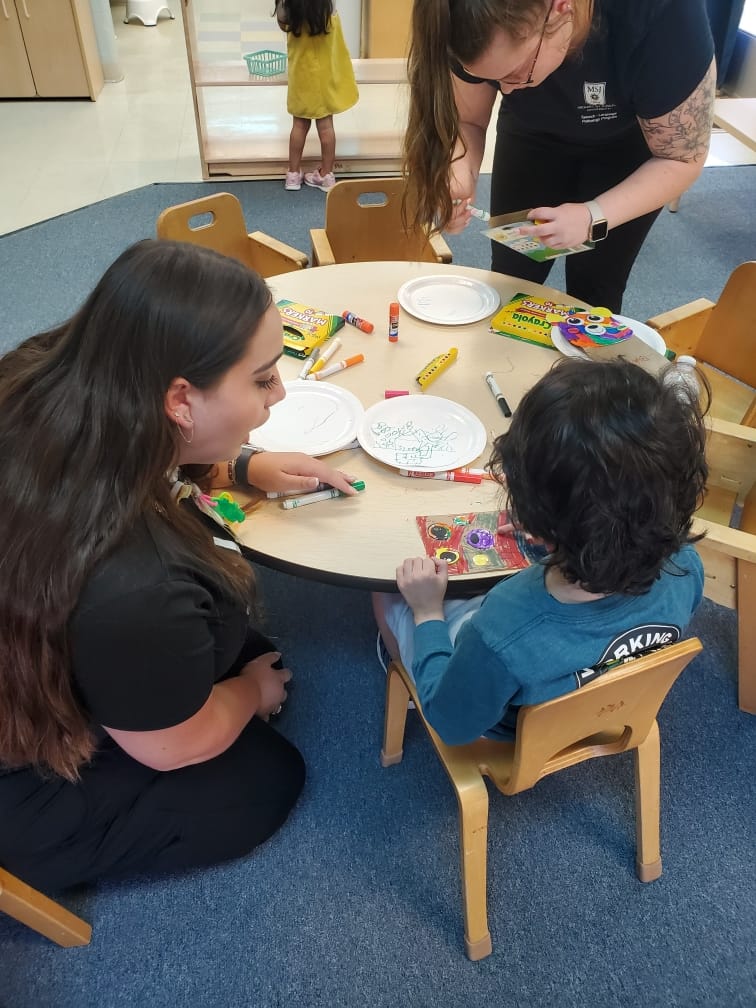The Mount’s Department of Speech, Language, and Hearing Sciences Welcomes the Summer Program for Multilingual Learners (SMiLe)

“The Summer Program for Multilingual Learners (SMiLe), was created to help children embrace their “superpower” of being bilingual while strengthening their language skills. It used a two-pronged approach: direct intervention for children and coaching for parents and caregivers. The program held last summer at the MSJ Lab School (known to parents as the Cubby Clinic), successfully achieved its key objectives of supporting bilingual children while empowering their families. The program served 14 children, ages three to five, and 11 families with a dedicated team of three MSJ faculty members (Emily Buckley M.A., CCC-SLP; Michelle León PhD., CCC-SLP; Sisan Cuervo PhD., CCC-SLP) and eight graduate students from the MSLP program.
The initial idea for a bilingual summer program emerged during the summer of 2019 when the worldwide pandemic had all our children on lockdown. Dr. Cuervo designed and ran the summer program online to give children an opportunity to interact with other children while receiving bilingual language-enriching sessions.” Michelle León
How families were selected for the program:
“The SMiLe program was open to any Spanish/English bilingual family with children between the ages of 3-5 years old. We recruited families through Santa Maria Community Services and expanded outreach via social media and collaborations with other community partners.” Michelle León

Examples of activities during these sessions:
“Children all engaged in a bilingual dialogic book reading activity, vocabulary activity, free play, crafts, snacks, and language activities.
Parents participated in a lecture-style class conducted in Spanish by Dr. León, after which they were provided with a toy for each section, along with specific strategies for using the toy to continue enhancing their child's language development at home.” Michelle León

Goal of SMiLe:
- Enhance the communication development of bilingual children who are at risk for speech and language delays through a two-pronged approach of direct intervention and parent/caregiver coaching
- Graduate students provided targeted intervention to the children in a small group setting, focusing on critical areas of language development. The theme, "Being Bilingual is a Superpower," shaped interactive activities designed to enhance bilingual receptive and expressive vocabulary. Clinicians emphasized the importance of using both languages, and integrated bilingualism throughout various activities, including story time (featuring bilingual books), free play, and a language-enriched crafting session. Additionally, group interactions offered opportunities for the children to practice language in socially meaningful contexts, supporting the development of linguistic skills, social engagement, self-regulation, and turn-taking.
- Empower families to feel better equipped for involvement in the development and educational processes of their children
- The program included a parent/caregiver coaching component. Group sessions for parents were held in the Mosaic Room, separate from the children's activities. These sessions focused on cultural sharing and community building, encouraging participants to share their cultural backgrounds and language experiences, thereby fostering a sense of community and mutual support. This exchange highlighted the importance of bilingualism and multicultural perspectives in raising bilingual children. Parents also received direct instruction in the areas of typical language development, common communication disorders, myths on bilingualism, dialogic book reading, available services in early childhood, and strategies to aid their children’s development. The sessions emphasized the value of lived experiences, helping parents recognize their critical role in their children's linguistic and educational journeys. As a result, parents left the program feeling more confident in supporting their children’s language development and better equipped to advocate for their needs within the educational system.
Future plans for SMiLe
“We are seeking ongoing funding to ensure the SMiLe Program continues each summer and can expand its reach. This year, we offered the program twice a week for two hours, but our goal is to extend the duration and involve more families. A major challenge is that many of our families lack reliable transportation, making it difficult for them to attend. While we provided Uber vouchers and gas gift cards, we hope to secure additional funding to make the program even more accessible for families in need of transportation support.” Michelle León
Sisan Cuervo PhD., CCC-SLP
“Aside from being a speech-language pathologist and assistant professor here at the Mount, I am most important an immigrant from Colombia, an English learner, and a first-generation scholar. The SMiLe Program is one way of giving back to my community. This program means a lot to me because it allows me to connect with families around the community who like my family struggled to navigate a system that is many times not inclusive and judgmental of Hispanic immigrants. This program allows me the powerful opportunity to impact children’s lives by showing them how their bilingual superpower can open many doors of opportunities for them in the future.” Sisan Cuervo
Michelle León PhD., CCC-SLP
“I am a Spanish-English bilingual speech-language pathologist and assistant professor at Mount St. Joseph University. Bilingualism is a core part of my identity and has been central to my research and clinical work throughout my career. I am passionate about dispelling myths surrounding bilingualism and communication development, and working to reduce the risk of misdiagnosis in bilingual and culturally diverse populations. The SMiLe program also allowed me to work alongside families to support them in maintaining their native language and in understanding how they can play a key role in their children’s overall communication development.” Michelle León

